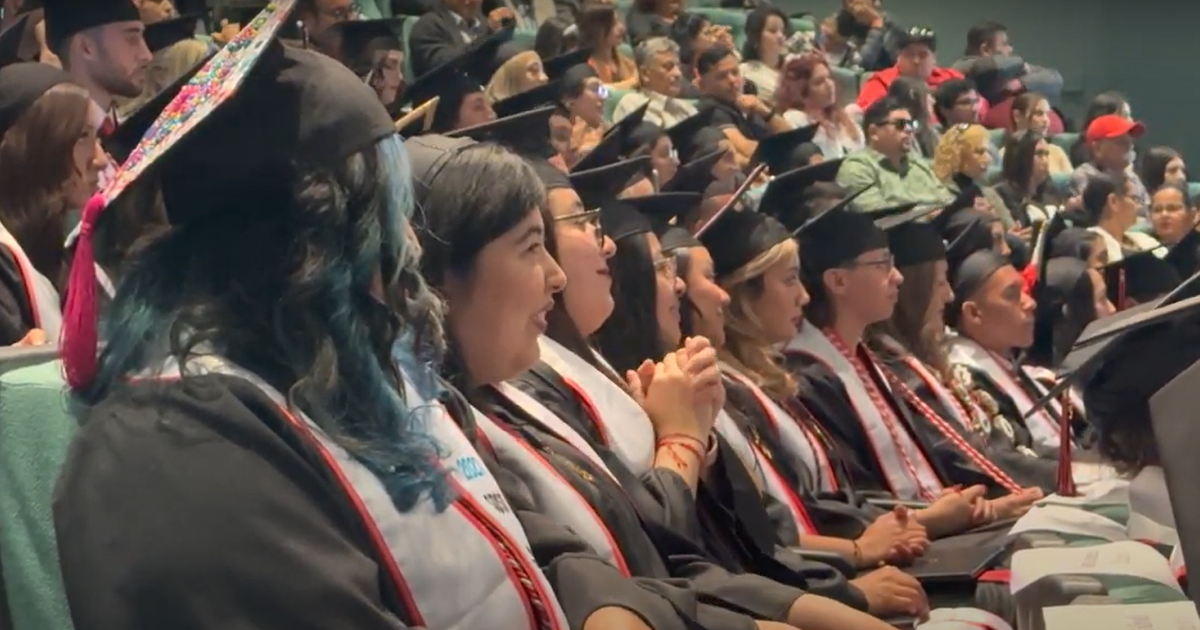Robert Gates on "Face the Nation" May 12, 2013
Bob SCHIEFFER: We spoke yesterday to former Secretary of Defense Bob Gates at historic William and Mary College in Virginia. We asked to give us his perspective on the Bengazi situation.
BOB GATES: Well, first of all I have to say I only know what I have read in the media. I haven't had any briefings or anything. And I-- I think the one where place where I might be able to say something useful-- has to do with some of the talk about-- the military response. And I listened to the testimony of-- both Secretary Panetta and General Dempsey. And-- and frankly had I been in the job at the time-- I think my decisions would have been just as theirs were. We don't have a ready force standing by in the Middle East. Despite all the turmoil that's going on, with planes on strip alert, troops ready to deploy at a moment's notice. And so getting somebody there in a timely way-- would have been very difficult, if not impossible. And frankly, I've heard "Well, why didn't you just fly a fighter jet over and try and scare 'em with the noise or something?" Well, given the number of surface to air missiles that have disappeared from Qaddafi's arsenals, I would not have approved sending an aircraft, a single aircraft-- over Benghazi under those circumstances. And-- and with respect to-- sending in special forces or a small group of people to try and provide help, based on everything I have read, people really didn't know what was going on in Benghazi contemporaneously. And to send some small number of special forces or other troops in without knowing what the environment is, without knowing what the threat is, without having any intelligence in terms of what is actually going on on the ground, I think, would have been very dangerous. And personally, I would not have approved that because we just don't it's sort of a cartoonish impression of military capabilities and military forces. The one thing that our forces are noted for is planning and preparation before we send people in harm's way. And there just wasn't time to do that.
BOB SCHIEFFER: But I guess that would bring up the question why not? Why wasn't there not some force? I mean, there were Americans there. They-- they obviously were-- were in danger. And there was nothing to protect them.
BOB GATES: Well, I don't-- I don't know the circumstances leading up to Benghazi in terms of requests for additional security there at the consulate or-- or any of that. I frankly just don't know. These things always look a lot simpler in retrospect though.
BOB SCHIEFFER: Let me just ask you-- General Mike Hayden, a former head of the C.I.A., said this week that the continuation of a false narrative that the administration perpetrated in the weeks after the Benghazi attack was not understandable and is not forgivable. Do you agree with that?
BOB GATES: Well, I think that's pretty strong. I mean, I've got a lot of respect for Mike. And-- and he's a good man. But-- I think-- I think without knowing all the facts, without knowing exactly what happened-- it's difficult to make that kind of-- that kind of a harsh judgment.
BOB SCHIEFFER: Have you talked to-- Secretary Clinton about this?
BOB GATES: No. Not at all--
BOB SCHIEFFER: You have not?
BOB GATES: No.
BOB SCHIEFFER: I know you worked very closely with her. And I mean-- you know what they're saying. The Democrats say the Republicans are on a witch hunt here, they're playing politics. Republicans are saying that the Democrats have been part of a cover-up, perhaps to protect her political future. Have you come to any judgment-- about any of this?
BOB GATES: No. I-- I think the only thing I'd say is that-- I mean, I worked with Secretary Clinton pretty closely for two and a half years. And-- I wouldn't want to try and be somebody to con-- trying to convince her to say something she did not think was true.
BOB SCHIEFFER: You don't think she would do that?
BOB GATES: No.
BOB SCHIEFFER: You-- let's-- talk a little bit about Syria. You originally opposed going into Libya because you said you didn't think we had a vital interest there. The President intervened. He said that the U.S.-- couldn't stand by while thousands of people were slaughtered. How is Syria different from Libya?
BOB SCHIEFFER: Well-- what should we do?
BOB GATES: Well, my-- my question back to you is: Why should it be us? There are other powers in the region, Turkey-- and others, that have military capabilities. You have Europeans that are much closer and whose interests are much-- are-- are equally affected. I understand our broad interests in the Middle East. And I understand the risks to us of chaos in Syria and of-- a of-- an ethnic cleansing there-- once the civil war comes to an end, no matter who wins it. But-- but the question that you asked me is the question I think there-- we don't have a satisfactory answer to. What should we do? What can we do? I believe that if we're to do anything, it is to pick and choose the opposition groups that we think have some-- moderation and would, you know, espouse what we m-- think is in the best interest of the region-- provide them with intelligence, with basic military equipment, work through Turkey and other countries perhaps in providing some-- some basic military equipment. But I think our direct involvement and particularly our direct military involvement-- would be a mistake. You know, I oversaw two wars that began with quick regime. And we all know what happened after that. And as I said to the Congress when we went into Libya, when we were-- when they were talking about a no-fly zone, "It begins with an act of war." And haven't we learned that when you go to war, the outcomes are unpredictable? And anybody who says, "It's gonna be clean. It's gonna be neat. You can establish the safe zones. And it'll be-- it'll just be swell." Well, most wars aren't that way.
BOB SCHIEFFER: You think, on reflection, it was a mistake to go Iraq?
BOB GATES: I think that what we know, with what we know now, in terms of the fact that they did not have weapons of mass destruction will always taint the fact that we went to war in Iraq. I think, I think historians will judge Iraq in the context of whether it is seen as a huge strategic mistake or as the, or the overthrow of Saddam Hussein as the first crack in a region of authoritarian governments that began a long, if difficult, path to democracy. And so I think-- I think it-- it's too soon to make the judgment whether it was the right thing to do or not. I think you have to look back a long time from now or some period from now and see how this all turns out. If Iraq falls apart and falls into civil war again, again then that's one thing. But if it somehow struggles through, and most of these politicians are arguing with each other, not shooting each other right now, then I think you could come to a different conclusion.
BOB SCHIEFFER: We are leaving Afghanistan. How do you feel about that?
BOB GATES: Well, I always supported Karzai's proposal that Western forces leave at the end of 2014. At the time that was first proposed, that gave us five more years to try and subdue the Taliban and build up the Afghan forces. And I felt that that was enough time to do that. And I think that based on what I'm reading in the press, that we are actually making pretty good headway with the Afghan forces. When people talk about, "Well, they have very limited number of units that can act on their own," that doesn't mean they won't fight, and they're not ready to die. What it means is they lack logistics support, they lack air cover, they lack intelligence. And those are things that we can easily help them with after 2014 with some modest residual force, which it sounds like everybody thinks is a good idea. I will tell you this: For us to leave lock, stock, and barrel at the end of 2014, and abandon Afghanistan as we did after the Soviets left, would be a disastrous mistake.
BOB SCHIEFFER: Well, do you think that's what's gonna happen here?
BOB GATES: I think we actually will end up with some kind of residual force. And my hope is that the draw down do that residual force will be slower rather than faster to give us the full time through 2014 to train and help the Afghans improve their capabilities.
BOB SCHIEFFER: What do we do about North Korea?
BOB GATES:Well, that's as tough as Iran in my view.
BOB SCHIEFFER: Is it a greater threat at this point than Iran?
BOB GATES: Right now, I would say it is because they have capability, they have nuclear weapons now. They do, are testing longer range missiles. I was quite surprised when I learned, as secretary, they were going straight to the development of a road mobile intercontinental ballistic missile. And frankly, I worry a lot about Kim Jong-un. I think that he does not have the experience or the sophistication, if you will, of his father or grandfather in terms of knowing where the red lines are. I also worry that he does not, and the other-- and the North Korean generals do not realize that there has been a dramatic change in public opinion in South Korea, and that after 30 years of swallowing provocation such as the sinking of their warship, the Cheonan, the artillery attacks on the island that killed innocent civilians, that the North, the South Koreans are not prepared to take that anymore, which creates an environment in which the next provocation could result in an escalation and the situation getting out of control. I worry that the North Korean leader does not have an understanding of that. That's what I told Hu Jintao in China on my last visit there. And that-- and that they needed to understand the risks of that. I think the Chinese are very uncomfortable with this whole situation. The last thing they want's another war on the peninsula. They also don't want this huge reinforcement of U.S. forces in the region. So I think that they are weighing in to try and calm this guy down. But their influence, they do have influence. But they don't have control. And that worries me.
BOB GATES: I believe that we have-- misjudged-- the Arab Spring and the Arab revolutions. And I will call it the Arab revolutions. And I, looking at it from a historian's standpoint. We tend to forget that if you look back over the last 200, 250 years, the history of revolutions is not a pretty one. And in truth when you think about the American, the French, the Russian, the Chinese revolutions and many others, only one turned out reasonably well in the first decades. And that was our own. There are no institutions in-- any country in the Middle East, in any Arab country that provide a basis or a foundation for enduring freedom or democracy. There is no rule of law. There are no civil institutions. And there is no history along these lines. And our preferred approach would have been an evolutionary change during which reforms could be enacted, institutions could be built, and you could have something long term. Now, I think in all of these countries, including Syria you have the threat of civil war, the threat of these countries falling apart. Syria, Libya both artificial creations of colonial powers putting together historically adversarial groups, religions, and sects. And-- and for us to think we can influence or determine the outcome of that, I think is a mistake. I thought it was a mistake in Libya. And I think it is a mistake in Syria. We overestimate our ability to determine outcomes, even if we had intervened more significantly in Syria a year ago or six months ago. I-- I think that caution, particularly in terms of arming these groups and in terms of U.S. military involvement, is in order.
BOB SCHIEFFER: And Iran? How do you see that situation going right now?
BOB GATES:Well, I've always said this is the toughest, I went to work for the C.I.A. 46 years ago, 47 years ago this year. And and this is the toughest problem I think I've seen. Because there are really no good outcomes unless the sanctions finally begin to bite enough that they-- that the regime decides that its own survival is at risk from economic troubles. Because the other alternatives-- if-- if there is no military attack and they don't change their policies, you will probably see a nuclear-armed Iran igniting a nuclear arms race in the most volatile part of the world, emboldened to be even more aggressive and with missiles that can reach Israel now and Europe soon. But if you do hit them, then I think the consequences of their retaliation could spin out of control.
BOB SCHIEFFER: What is the best argument we can make to them that they should not become a nuclear power?
BOB GATES: Well, I think that the face-saving measure is to power, or for medical research, or whatever that is adequately policed by international agencies to give all of us, including the Israelis, confidence somehow figure out a way for them other have a peaceful nuclear program for electric that they're not working on nuclear weaponization and that we would have enough lead time, should they change their minds and go back to that program, to act militarily. I think providing some kind of face for them in this is the only way to avoid the really nasty consequences. But the bottom line still has to be: They can't have nuclear weapons, and there has no be an inspection regime that is adequate to give all of us confidence that they're not working on nuclear weapons.
BOB SCHIEFFER: You are, one of those, there used to be a lot of people like you around-- who were seen as those who served their country rather than serve their party. I mean, you are a Republican. But you worked for Democrats. You've been back and forth. Now that you've been away from government for a while, what do you think is the greatest threat at this point to America's security?
BOB GATES: I think that the greatest threat to us right now is-- is the inability of our political leaders to come together on bipartisan solutions, long-term solutions to the very real problems we have. Whether it's the deficit, whether it's government spending, whether it's entitlements, immigration, infrastructure, education, that broad middle band that used to be so strong in the Congress, of members of Congress, center left, center right, people I used to call bridge builders. That's where the country has always been governed from. The country has moved forward based on great ideas from both the left and the right. But it's been the centrists that have translated those into law through compromise. That's the foundation of our political stability and of our political system. The American Constitution is built on compromise and created a political system that demands compromise. And unless we can come together on policies to deal with these problems that can survive one Congress and one Presidency, then I think we're in real trouble. One of the reasons I think we were successful in the Cold War, was we followed a basic strategy toward the Soviet Union of containment, through nine successive presidents, both Republicans and Democrats. Big problems require a long time to solve. It took us a long time to get in the fix we're in. It'll take a long time to get us out. And this striving for momentary political advantage or to score ideological points on either side of the spectrum, I think is doing serious damage to the country.
BOB SCHIEFFER: Mr. Secretary, thank you so much.
BOB GATES: Thank you, Bob.



